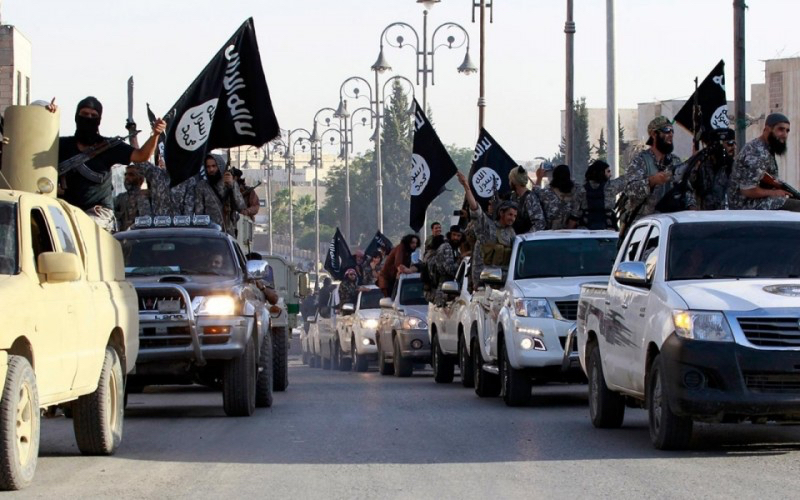
Islamic State and Al-Qaeda: The Threat of Cooperation
Several open sources have claimed that al-Qaeda’s (AQ) affiliate in Syria, the al-Nusra Front, has agreed to a non-aggression pact with the Islamic State (IS). While these reports may be speculative, an accord between al-Qaeda and the Islamic State, and the end of the infighting between the jihadist organizations would have deleterious ramifications for all those who oppose them including the Kurds, the Assad regime, and any US-led coalition. However, given the costly and bloody falling out between al-Qaeda and IS, it is highly unlikely that the present conditions could foster a potential truce or accord between these fratricidal jihadist organizations.
As a result of recent and increasing hostilities, the divide between al-Qaeda Central and the Islamic State is too great to expect a formal merger under a centralized leadership. However, there is one interest common to all militant, criminal, and terrorist organizations – their own survival. Cooperation in Syria and Iraq is about survival for both al-Qaeda and IS. While their enemies rejoiced in their fracture the two groups risked much with their ongoing and open conflict. With multiple fronts and an array of enemies against them, both al-Qaeda and the Islamic State would benefit with one less front to worry about. However, these ascendant jihadist organizations are in competition over territory, recruits, and the future of a Salafi-Jihadist established caliphate, and the level of trust and sophistication needed to facilitate such cooperation must be mutually beneficial.
While cooperation between similar ideologically motivated organizations often exists due to common enemies, motives, or goals, and the broader agenda of al-Qaeda and IS is the establishment of a Salafi-Jihadist caliphate under Sharia law, the organizations are at odds over how it will be governed – and who will rule as caliph.
Abu Bakr al-Baghdadi has already declared the territory governed by his group as the ‘Islamic State’ and ‘Caliphate’ – A proclamation Zawahiri and al-Qaeda’s central leadership have rebuked and declared as blasphemous. Additionally, al-Qaeda and its affiliates distanced themselves from what they believe to be an increasingly brutal and extremist Islamic State organization, whose overzealous commander prematurely proclaimed the establishment of an Islamic caliphate – and perhaps most unforgivably for Zawahiri, Baghdadi himself as the Caliph. If Zawahiri were to openly cooperate with Baghdadi and IS he would undermine himself, undoubtedly degrading the respect and brand of al-Qaeda.
After formally disowning Baghdadi and the Islamic State in January 2014, Zawahiri severed all ties proclaiming that al-Qaeda bore no responsibility for the actions of IS. While this political move was designed to outmaneuver an increasingly negative reputation of brutality, disobedience to al-Qaeda, and extremism by Baghdadi and IS, it was also about retaining the al-Qaeda brand. However, in disowning Baghdadi and his group, Zawahiri perhaps calculatingly relinquished al-Qaeda’s capabilities in Iraq to IS, its former AQI branch. Al-Qaeda has since lost its ability to effectively operate in Iraq and has greatly suffered from this costly decision. Al-Nusra Front is the only al-Qaeda affiliate in Syria and must therefore remain active and involved if al-Qaeda is to remain relevant in the region. Neither al-Qaeda nor its affiliates can ill afford to lose recruits or defectors to the Islamic State. The inverse is that given the potential increase of defectors from IS who have become disheartened by the strict adherences to Baghdadi’s interpretation of Sharia law, al-Qaeda and the al-Nusra Front may benefit if defectors from IS seek a less extremist ideology, and find they are no longer able to return to their countries of citizenship. If the al-Nusra Front has agreed to a non-aggression pact with the Islamic State, secretly sanctioned by al-Qaeda or not, then Zawahiri would save face for disowning the Islamic State while continuing to influence an al-Qaeda’s presence in Syria. Even a non-aggression pact carries the potential for the Islamic State and the al-Nusra Front to further their own agendas and prolong their survival without the threat of further escalation.
The success and survival of militant organizations depends on recruitment, reinforced by an ability to operate at the forefront of clandestine and military theaters, but due to the amount of visceral distrust, broken allegiances, and competition between al-Qaeda and the Islamic State, the likelihood of cooperating for the purpose of joint operations is highly unlikely at this point. Since being disowned by al-Qaeda, IS has sought to establish its own brand — but at a price. However, the Islamic State has set itself apart by achieving what al-Qaeda never fully could by establishing and controlling territory. Although IS has uniquely distinguished itself from al-Qaeda by securing territory and fertile grounds for recruitment and resources, it still lacks the Salafi-Jihadist validation once endorsed while under the al-Qaeda flag. Despite shared interests and common enemies, the current level of mutual benefits and interests is not likely to yield the potential for joint operations without the threat of further betrayal.
The Islamic State was funded by al-Qaeda when it existed as its affiliate ‘al-Qaeda in Iraq’ (AQI), though the Islamic State has since subsequently established its own increasingly sustainable lifeline independent of al-Qaeda and its subscribers. IS has been achieving sustainability through the group’s seizure of territory, allowing the group to generate revenue and resources through criminal activities, which include the illegal sale of oil, extortion of the local populations for food and resources, and trafficking in weapons and people. Additionally, while it may seem conceivable that al-Qaeda and IS could establish the foundations of trust necessary for possible future cooperation through trafficking in weapons or specialized training, the proliferation of these activities continues to increase dramatically throughout the Middle East, allowing both IS and al-Qaeda to remain well supplied, effectively reducing any need for cooperation. The Islamic State has greatly increased its own capabilities by ransacking and capturing equipment from the Iraqi and Syrian militaries. Zawahiri and Baghdadi know that every bullet prolongs their own survival, and that aiding one another will only prolong the competition and future confrontations between two organizations.
Cooperation relies on the level and extent of trust established between organizational hierarchies, which may be unattainable at present given the body count and expended resources of this violent and ideological feud – something militant jihadists do not easily forgive. There is limited trust between al-Qaeda and the Islamic State required for fostering fertile ground on which to establish potential future cooperation in repelling Kurdish militias, the al-Assad regime, and US-backed forces. If the present benefits of cooperation are not compelling enough to foster a truce, perhaps increased airstrikes and threat of mobilized and better equipped enemies will be enough for al-Qaeda and IS to resolve their conflict in order to prolong their own survival.

